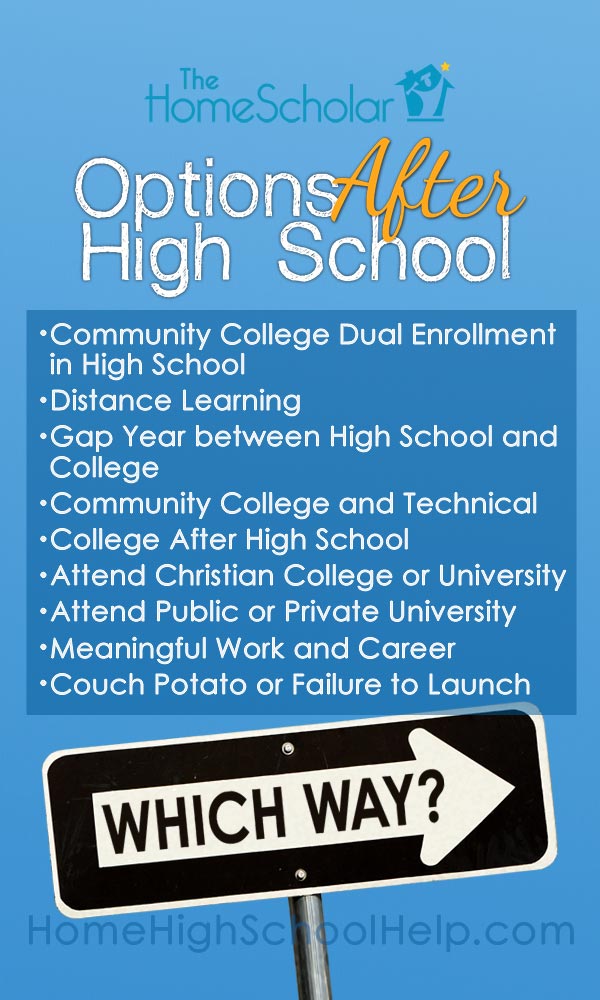Quick Links
Learn to Create
Scholarship Winning Homeschool Records
Community College Dual Enrollment in High School
If you have ever said public university is not an option for your family because it does not conform to your family values, then you may not be happy with community college. As much as many public universities are liberal, radical, and sometimes offensive, a community college can be even worse. It often surprises parents to know that registered offenders can attend community college without anyone’s knowledge, because it's not intended to be a children’s environment but a facility for adults.
Spend time researching the dual enrollment option before deciding that it's a good fit. There is, of course, much variation in the quality and personality of each community college. Make sure this is a choice you make with your eyes wide open. A community college is not necessarily less of a risk because it has “community” in its name.
One thing to keep in mind about community college is that the grades are permanent and failure is a possibility. When you consider community college as a way of getting outside documentation of your homeschool grades, you need to be confident about your student’s ability to succeed. Any poor or failing grade your child earns at community college is permanent and will be reported to any university where your child applies, so community college may not be a benefit.
Distance Learning
Your child can work toward a college degree through distance learning, earning college credits while studying at home independently. This involves taking tests such as CLEP, DSST, or AP. College policies vary widely so make sure the exam you choose will meet your child’s needs. CLEP exams can provide outside documentation of your homeschool and possibly earn your child college credit in order to save money.
There are two different ways to prepare for an exam. One is to follow behind your student and scoop up what they know. Give a sample test at home to see which tests they can pass. Then have your child take the test in the particular subject when you’re positive they can pass it. This will allow your child to accumulate college credits with minimal effort, and shorten the time needed in a university to achieve a degree.
The other way of handling distance learning is to plan ahead for specific tests. Choose the test your child needs to take. Have your child learn the subject like any other homeschool subject, then fill in learning gaps through a study guide. Have your child dedicate time to study the material for a CLEP exam in that particular college subject.
It’s possible to accumulate a large number of credits through various tests, and have them sent to a college that will award a degree. It can sound trendy to say your child is attending college online, but it’s not a new phenomenon. Years ago, homeschoolers engaged in distance learning as well. They mailed in their tests and papers instead of by email or fax, but it was the exact same thing. Resources for distance learning have been around for a long time.
Gap Year between High School and College
During the college search process, ask each college about their gap year policy. The process often involves applying to college first, to retain scholarships. They may require a signed agreement to reserve the scholarships for your child the following year, when they finally attend. Some colleges are easy-going and happy to have your child no matter what. Other colleges may require the student to submit a plan for the gap year and give regular updates on their progress. At some colleges, your child may apply after the gap year is complete, with the hope their experiences will enhance the college admission essays. Find out what each college’s policy is during junior year, if you are considering this option.
Do not take a single college credit during a gap year without doing some research first. College policies vary widely on gap years. Speak directly to the colleges where your child wants to attend. Often the gap year process begins with the college search and application process first. Some colleges remove scholarships if the student takes even a single college class after high school. Don’t assume your child can take community college classes during a gap year unless you have confirmed your university’s policy in writing.
Community College and Technical College After High School
If you earn the financial aid package at the university and still can’t make the numbers add up, sometimes community college is a more affordable option. Classes are open to all abilities; if your child has already graduated from high school and is struggling with basic reading, writing, or math, community college can be a way for them to take a class at their ability level. It can be helpful if your child is behind and has to catch up quickly. Homeschoolers have been able to catch up on math or foreign language in community college and go to their first choice university later on. It can be particularly helpful for a student who had to be dragged kicking and screaming through their homeschool graduation, and as an adult suddenly becomes willing to learn. An adult learner who is motivated to learn can easily transition into community college and they may also earn an AA degree.
Finally, vocational school or technical college is a wonderful way for adult students to transition into independence. The path to vocational school often grows out of the passionate interests that develop when a child reaches the teen years. Far from being less than college, a vocational school graduate is well on their way to meaningful employment and an honorable career in a field they care deeply about.
Attend Christian College or University
Letting your child go to college is like letting your child ride their bike without training wheels for the first time. It can be terrifying for both parent and child. Even with a helmet, a child could get seriously hurt. Similarly, even with careful college selection, it is still possible for a child to get hurt through a college experience. Still, it’s not necessarily more scary or hazardous than riding a bike without training wheels.
Consider 1 Corinthians 13:11: “When I was a child, I spoke like a child; I thought like a child, I reasoned like a child. When I became a man, I gave up childish ways.” You probably spend much time during your homeschool years explaining the reasons you keep your child safe at home. Those reasons don’t change when your child grows up. It's your child who changes; your child becomes an adult. Adults must interact with a fallen world on a regular basis. Firm in their faith, adult Christians need to negotiate contrasting world views with their own beliefs intact.
At some point your child will be ready to become a man or woman and move on into adult life – and that life may include college. Train up your child in the way they should go and when they become an adult, allow them to enter the world as a force for good. Because Jesus said, “Go into all the world and preach the good news to all creation” in Mark 16:15. It’s a command. Jesus said it. That verse screams for your attention. He doesn’t say, “Go into all the world, except for college.” If college is in your child’s future, prepare them to face it as a mature adult.
Of course, you don’t have to throw your children into the lion’s den, either. Choose your child’s college carefully, weighing the options. Don't be afraid of college in general. If college is the next natural step after high school, then prepare your student to step boldly into adulthood. Allow them to engage the culture so they may change the world. College is the time for parents to complete the transition from sheltering their children from harm and letting them become independent. In college, a student can experience independence but still have a network of supportive and caring professionals and peers.
Attend Public or Private University
During junior year, search for colleges where you want to apply. Attend a college fair, and carefully research colleges you and your child are interested in. Then have your child study for the SAT® or ACT®, so they have the best possible chances of admission. Visit colleges so you know if each one will be a good fit. By the end of junior year, choose 4-8 colleges where your child will apply. Make sure you include “Reach, Fit, and Safety” schools, with a variety of public and private universities.
Begin senior year applying for colleges. There are application forms, financial aid forms, and letters of recommendation to coordinate. The student must write multiple essays that are self-reflective and technically perfect. Professional-looking homeschool records must be sent to the college during the application process.
It’s not as if your child can claim they're going to university one day and show up for class the next day. It’s a long process. The application process requires so much time and effort that it’s almost impossible to get it all done during senior year. When university is your goal, you need to apply on the first day of senior year. I know this can surprise parents because it’s a year in advance, but your child can get the best scholarships available by applying early.
Meaningful Work and Career
Eventually, children need to become self-supporting. Instead of college, some children enter the work world directly. Although it is tempting to believe that any job is a successful launch into society, it's important to remember that your goal is not for them to simply work. Your goal is for your children to grow up and become independent, which means working and making a living wage. While meaningful work is important, they will need to make enough money to pay for rent and car expenses, buy groceries, and eventually raise a family of their own. Careers begin in many ways, from entrepreneurship to military service, to special gifts and talents or hard work and a strong work ethic.
Internships are a popular option for homeschool graduates to test drive a vocation or profession. Whether they are paid or unpaid, internships can be valuable, if only for the insights they provide. Students who successfully complete an internship may eventually land a full time position at the same company. But even if they don't, internships can yield valuable letters of recommendation which can be used to find paying jobs.
Adults change careers fairly frequently, and that may happen to your child as well. They may begin adulthood with a satisfying job, and then their focus may shift to career advancement. For example, they may begin working at a restaurant, and then enjoy it so much they want to advance in the company. Often that will mean a college degree is necessary. Your job is to prepare your child for anything, so no matter where they go in life, and how their plans change, they still have the high school education to help them achieve their goals.
Couch Potato or Failure to Launch
Encourage your child to become an independent adult. If they have trouble making a decision, you can make suggestions. One idea is to attend a small liberal arts college, where they can try a variety of classes and topics to find a career interest they enjoy. Another idea is to set clear boundaries around living at home. Explain to your child that they can receive support and live at home if they have a full time job or attend college full time. With clear expectations they will receive no spending money, phone privileges, or gas for their car, they may become more motivated to make a positive life choice.
It’s possible to do everything in your power to ensure independence and still end up with a couch potato adult. If you have trouble with failure to launch, these resources may help.
- Engaging Today's Prodigal: Clear Thinking, New Approaches, and Reasons for Hope by Carol Barnier
- Parenting Your Adult Child: How You Can Help Them Achieve Their Full Potential by Chapman and Campbell
- Setting Boundaries with Your Adult Children: Six Steps to Hope and Healing for Struggling Parents by Allison Bottke - is geared primarily toward parents dealing with delinquent behavior: drugs, alcohol, and felonious behaviors
- When Our Grown Kids Disappoint Us: Letting Go of Their Problems, Loving Them Anyway, and Getting on with Our Lives by Jane Adams - provides warmth, empathy, and perspective
- The Power of Praying for Your Adult Children by Stormie Omartian
Be Prepared for Changing Choices
Homeschool parents must be prepared too, with complete and accurate homeschool records. Commit to completing all homeschool documentation before your child graduates. I can’t stress enough how important this is! Every year, parents and students reach out to me for help with record keeping. Some of these parents have children in their mid-twenties.
Last month I received an email from a 26 year old man, homeschooled for grades 2 through 12. His parents didn’t keep records, and he never intended to go to college so he felt it didn’t matter. But at the age of 26, he changed his mind. He was trying to attend online college and said it would be easy enough to start, except they required a high school transcript. Now almost 10 years after graduation, this man and his mother had to work together to create a transcript from memory alone. Please make your homeschool records every year – no exceptions. No one can see the future. You don’t want to be the weakest link, holding your child back.
In high school, plan for the best possible education for your child. Provide life skills, work skills, and job skills so they can succeed at any career in the future. Update your transcripts and course descriptions every year, so you are ready for anything – even if college isn’t part of the immediate plan. Be prepared for anything and provide your child with a college prep education.

 Login
Login









